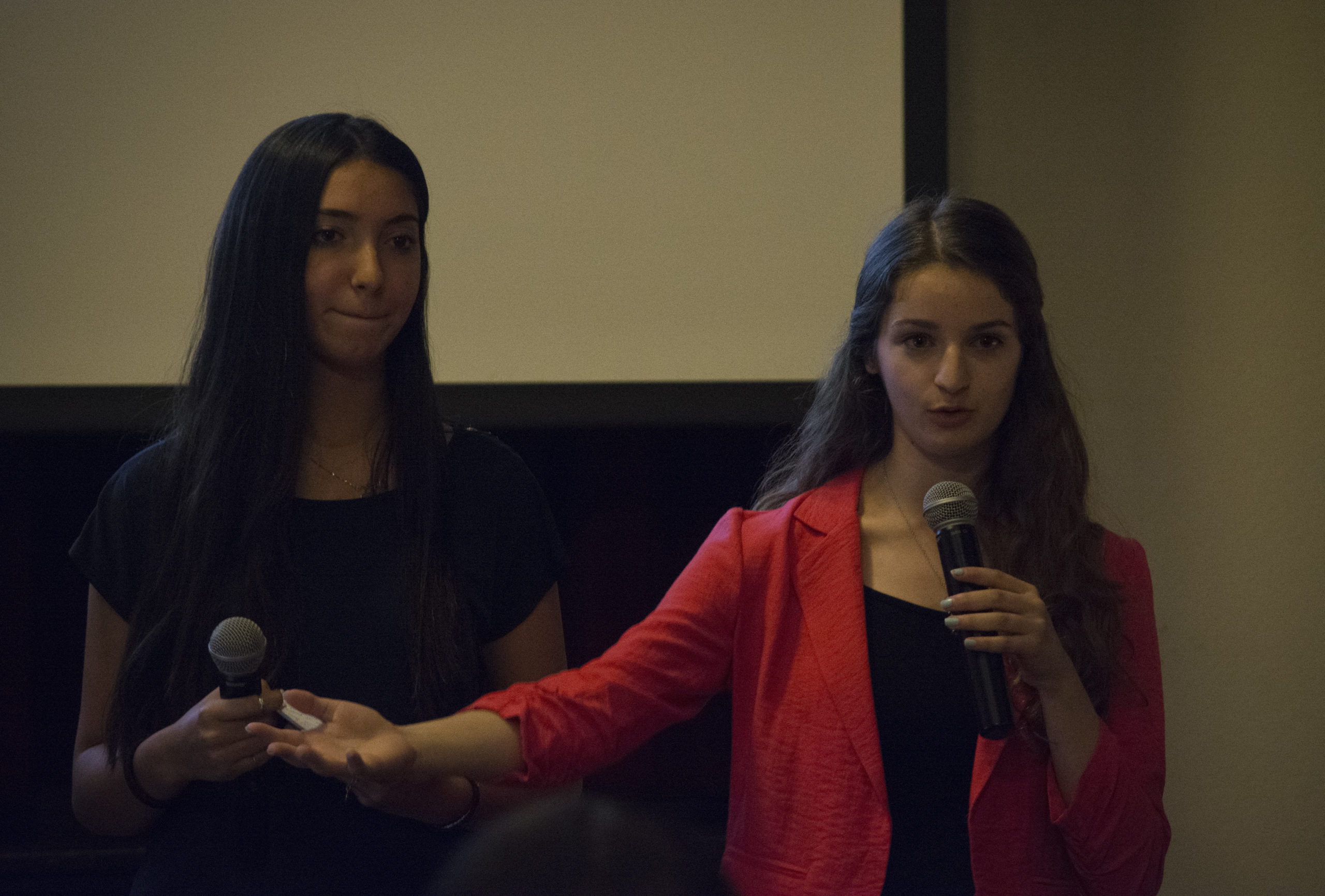The person who could some day stop breast cancer might have been among some high school students at the Great Neck House late Thursday night, as they presented the results of research they conducted this year.
The Great Neck Breast Cancer Coalition, first formed in 1992 to advocate breast cancer prevention and research, sponsored nine students to partner with various universities throughout the northeast in research. The internships are two to seven weeks long.
These students came from Sewanhaka High School in Floral Park, North Shore Hebrew Academy and Great Neck North High School.
Laura Weinberg, the founder of the Great Neck Breast Cancer Coalition, said this particular program serves two purposes: to help research a way to stop breast cancer and spread the word about it so people can take action.
“It’s very moving,” Weinberg said. “This is a very big night for us because after on working on this from January until now, we tell the students they’re going to come back speaking like scientists.”
Many of the students who presented will be attending a national conference on breast cancer research in November, Weinberg added.
Sewanhaka High School’s Sayo Ogunleye discussed a correlation between vitamin D deficiency and breast cancer development. She highlighted that the majority of girls have sub-optimal levels of the vitamin and said that needs to change.
“Let’s focus on the fact that 64 percent of these girls were in the sub-optimal range [of vitamin D],” Ogunleye said, referencing girls aged 5 to 15. “That’s a problem, yet again, that needs to be addressed.”
Isabelle Saraf of Great Neck High School and Aaron Abizadeh of North Shore Hebrew Academy also discussed substituting medical tubing and toxic food additives with “L-lysine ethyl ester diacid.”
“We both did our tests and the results came out positive that they were extremely comparable to ones on the market,” Abizadeh said. “As a matter of fact they were cheaper, the process was more efficient, it used less energy, and if we can get these harmful toxins out of our environment in any way possible, I don’t see why not to.”
Zainab Mian of Amrita Shah of Sewanhaka High School explored the effects of endocrine disrupting chemicals. Noah Ahmed and Mahnoor Ali, also from Sewanhaka, then showed the possibility of substituting chemicals in every day products with a synthetic enzyme called “cutinase.”
North Shore Hebrew Academy’s Haley Klein and Ophir Sabah concluded the presentations by talking about how BPA, considered a likely carcinogen, was replaced by BPS – which adversely affects the mammary gland.
61 students have gone through the program since its inception in 2005, according to Laura Weinberg.
The very first was Karen Glaser, 30, who went on to graduate from Cornell University, become a science teacher and join the Great Neck Breast Cancer Coalition’s board of trustees.
Glaser said that in the beginning, there may have been hesitation from both parents and scientists to allow high schoolers to partner with universities.
But now it serves the purpose of pushing change and educating people, she said.
“I think that this particular program bridges scientists and laypeople through students, who are then going to move on to be the next scientists,” Glaser said.
Anyone dealing with breast cancer in the area is encouraged to reach out to the Great Neck Breast Cancer Coalition and utilize their Lending a Helping Hand Program.



